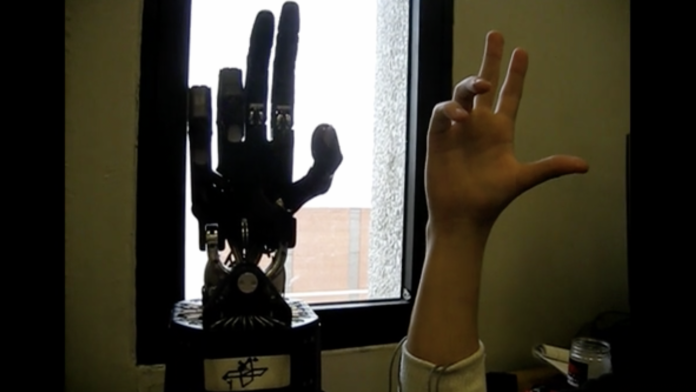
More than 1.6 million Americans and millions more worldwide have suffered the loss of a limb, and current models of prosthetic hands are falling short
Many complex and even simple tasks are still largely impossible for those with hand prosthetics, such as using can openers and screwdrivers. These tasks remain impossible due to current prosthetics having five individually actuated digits, yet only one grasp function can be controlled simultaneously.
However, these deficiencies are being explored and addressed by researchers from Florida Atlantic University’s College of Engineering and Computer Science. Having received a four-year $1.2 million grant from the NSF “empower amputees to maximize their individual potential for controlling the full dexterity of artificial hands”.
Finding ways to expand prosthetic hand control
Combining machine learning motor intention classification algorithms and reinforcement learning, the project will involve a novel bimodal skin sensor. Research clinicians will interact with 10 study participants over one year for muscle training using a smartphone.
“Anything exceeding basic functionality remains elusive for prosthetic hands even though they are mechanically capable of such feats,” said Erik Engeberg, PhD, principal investigator and a professor in FAU’s Department of Ocean and Mechanical Engineering.
“One major bottleneck limiting more sophisticated functionality is the lack of an intuitive biosignal classification method that can reliably interpret hand motor intent, as well as people, can do for a broad range of tasks. This is no simple feat.”
“Automating this aspect of health care with remote learning functionality can help disabled people access treatment more quickly, more conveniently and at a lower cost,” said Engeberg.
“Automating this aspect of health care with remote learning functionality can help disabled people access treatment more quickly, more conveniently and at a lower cost”
The need for intuitive control of prosthetic hands
According to the team, current prosthetics use wrist flexor muscles to close the hand and use the extensor muscles to open the prosthetic hand, meaning the user must switch between different grasp types, which can feel unnatural.
Although there are numerous options for dexterous wearable co-robot assistants, such as prosthetic hands, the dexterity of these devices is rapidly outpacing the ability of people to control them intuitively.
A key hurdle stems from the inability to interpret the intentions of the human operator reliably. Another problem is that the science behind customizable training programs to empower disabled people to harness the full potential of prosthetic hands has not been explored deeply enough.
“This non-intuitive functionality is why many amputees reject using artificial limbs, which is unfortunate because of the negative collateral effects at work and for pleasure, which drastically impact their quality of life,” said Engeberg. “The current clinical state-of-the-art has a minimal level of dexterous controllability; overcoming this problem is the goal of our research.”
3D scanning residual limbs to fabricate form-fitting prosthetic sockets
Key to this research is 3D scanning. For each of the 10 amputees recruited for the study, the researchers plan to 3D scan their residual limbs to fabricate form-fitting prosthetic sockets adaptable to anticipated changes in residual limb musculature over the course of the program.
The plan is to develop bimodal robotic skin to sense biocontrol signals in the residual limbs that will then be integrated within the customized prosthetic sockets to overcome limitations with current sensing technology.
The technology also will provide the research team with the ability to monitor the patients’ usage data from remote locations, which has broad applications to connect disabled people located around the world with specially trained clinical teams.
“Losing an upper limb has a devastating impact on the ability to perform common daily activities,” said Stella Batalama, Ph.D., dean, FAU College of Engineering and Computer Science. “The uniquely holistic approach developed by professor Engeberg and his colleagues to transform the state-of-the-art for dexterous control of prosthetic hands could break through previously insurmountable barriers.”










